Jeremie Averous's Blog, page 61
March 20, 2018
How to Remain Open to Putting Our Beliefs in Question
In a beautiful post on Tearing Thoughts, Om Swami quotes a story about clinging too much to a falsehood. It ends with a deep learning: “The Buddha said, “Sometime, somewhere you take something to be the truth. But if you cling to it too strongly, then even when the truth comes in person and knocks on your door, you will not open it.”
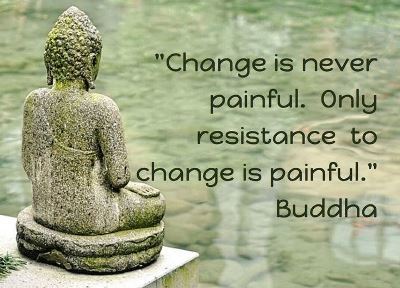 Many people cling to beliefs that are false, or outdated. It gives them a sense of security. If they face a situation that clearly demonstrates how their belief is wrong, they can sometimes refuse to accept it. Or the change can be so tearing that it destroys the person.
Many people cling to beliefs that are false, or outdated. It gives them a sense of security. If they face a situation that clearly demonstrates how their belief is wrong, they can sometimes refuse to accept it. Or the change can be so tearing that it destroys the person.
Keeping one’s mind open requires quite a different mindset. It requires to remain open to the fact that one’s beliefs are just a working assumption that appears to prove right in the majority of cases encountered so far in on’s life . It is the core of the scientific approach (a theory is right until it is proven wrong), even if even in that remit, it can take a change of generation to get new theories mainstream. This position is more difficult to adopt but then provides a lot of value as it diminishes pain greatly.
Remain open to the fact that your beliefs are just working assumptions.

March 17, 2018
How Younger Generations Are Becoming More Perfectionist
According to this excellent Quartz post ‘Millennials are more perfectionist than other generations, but it’s not their fault‘, multiple studies show that younger generation become increasingly perfectionists.
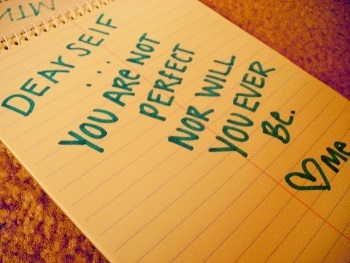 This increase of perfectionism appears to happen mostly in social-driven perfectionism (no doubt driven by social networks and the need to look perfect in them). “The explosion of personal branding rituals—the posting of selfies and status updates announcing new relationships, strong grades, or promotions—exposes everyone to idealized versions of their peers, making college students feel that others are racing ahead, closing in on the perfect life.”
This increase of perfectionism appears to happen mostly in social-driven perfectionism (no doubt driven by social networks and the need to look perfect in them). “The explosion of personal branding rituals—the posting of selfies and status updates announcing new relationships, strong grades, or promotions—exposes everyone to idealized versions of their peers, making college students feel that others are racing ahead, closing in on the perfect life.”
It would seem also that the increasing pressure from parents for academic success would be another factor.
While this is certainly to be taken into account in organisations, we need to recognise imperfection is a deep source of value. Unconventional people have more value than ever in a world where they can broadcast. In the new world more than in the previous Industrial Age, it is those people that will escape the perfectionist syndrome that will succeed.

March 15, 2018
How Major Internet Companies Are Concerned About Societal Impact
There is an increasing concern by the leading Internet companies like Google, Facebook, Microsoft etc of the societal consequences of technology. And they are trying to take the initiative, probably because they fear that otherwise there will be laws and regulations against them.
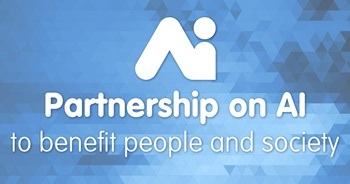 They went up to create a group called ‘Partnership on AI‘ that is currently bringing together internet giants, NGOs, key industrial consultants. It was ‘Established to study and formulate best practices on AI technologies, to advance the public’s understanding of AI, and to serve as an open platform for discussion and engagement about AI and its influences on people and society.’ It is based on the tenet that ‘We believe that artificial intelligence technologies hold great promise for raising the quality of people’s lives and can be leveraged to help humanity address important global challenges such as climate change, food, inequality, health, and education.’
They went up to create a group called ‘Partnership on AI‘ that is currently bringing together internet giants, NGOs, key industrial consultants. It was ‘Established to study and formulate best practices on AI technologies, to advance the public’s understanding of AI, and to serve as an open platform for discussion and engagement about AI and its influences on people and society.’ It is based on the tenet that ‘We believe that artificial intelligence technologies hold great promise for raising the quality of people’s lives and can be leveraged to help humanity address important global challenges such as climate change, food, inequality, health, and education.’
The Bloomberg article ‘Microsoft Says AI Advances Will Require New Laws, Regulations‘ explains why those large companies are becoming concerned. The impact of AI will be wide ranging but first of all it is essential to prevent social upheaval. It feels a bit like the concern of the largest capitalists in the 19th century, keen to prevent the communist revolution: it is essential that benefits of the new value creation flow back to the people and that protection be granted. And in turn this would protect the de-facto monopoly of the internet giants. Will they win of lose?

March 13, 2018
How to Embrace Things That Might Not Work
Following up on Seth Godin’s four elements of ‘What Makes an Entrepreneur Different‘, it is interesting to elaborate on the fourth element: “Embracing (instead of running from) the work of doing things that might not work“.
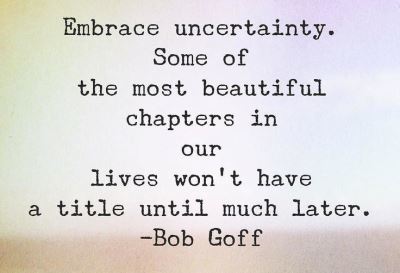 As an entrepreneur and junior business angel, I have now had this experience repeatedly. Things that looked like great ideas and that turn out to be utter failures almost leading to bankruptcy. Things that looked like great opportunities and finally just purred away with little or now growth. And a very few things that often looked mundane but finally delivered the most value.
As an entrepreneur and junior business angel, I have now had this experience repeatedly. Things that looked like great ideas and that turn out to be utter failures almost leading to bankruptcy. Things that looked like great opportunities and finally just purred away with little or now growth. And a very few things that often looked mundane but finally delivered the most value.
Still somehow I am still keen to try new things. How come?
I guess there are two elements to it:
Curiosity. I have always been curious and willing to explore many different fields.
Resilience. I have learned that it is possible to try many things without dying (financially or socially). It is even possible to highlight the fact that I have tried something and failed. And now I don’t care too much, because the things that worked kind of excuse and finance what does not.
Stay curious. Become resilient in trying new things – and understand most won’t work.

March 10, 2018
What Makes an Entrepreneur Different
The description of Entrepreneurship given by Seth Godin in his post ‘The four elements of entrepreneurship‘ hit a nerve with me.
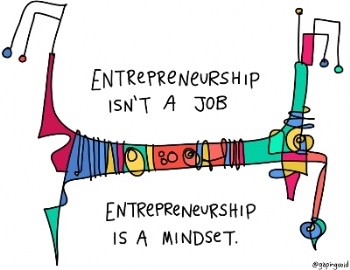 Basically Seth states that Entrepreneurship is a choice and that there are only 4 elements of entrepreneurship. According to him the rest can be hired:
Basically Seth states that Entrepreneurship is a choice and that there are only 4 elements of entrepreneurship. According to him the rest can be hired:
“Making decisions.
Investing in activities and assets that aren’t a sure thing.
Persuading others to support a mission with a non-guaranteed outcome.
Embracing (instead of running from) the work of doing things that might not work (this one is the most amorphous, the most difficult to pin down and thus the juiciest)”
The interesting thing is that each element taken individually does not make much of an entrepreneur (for example, element 2 can also characterise a stock trader, who is generally not so much an entrepreneur). It is the (rare) combination of those four characteristics that make up the entrepreneur. An definitely, the fourth element is the hardest to apprehend.
Based on these elements, how much of an entrepreneur are you?
[illustration by Gapingvoid]

March 8, 2018
How We Need to Audit the Key Algorithms That Drive our Lives
As an example of our previous post ‘How Algorithms Can Become Weapons of Math Destruction‘, New York City has decided to audit the key algorithms used by the city to decide on their resource allocation.
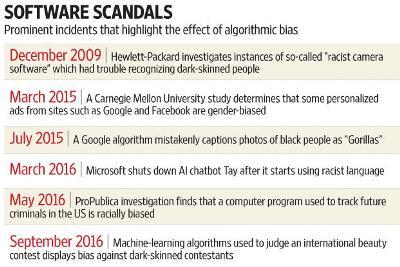 The issue is described in detail in the post ‘New York City Wants to Audit the Powerful Algorithms That Control Our Lives‘. A task force will be created that “will audit the city’s algorithms for disproportionate impacts on different communities and come up with ways to inform the public on the role of automation“.
The issue is described in detail in the post ‘New York City Wants to Audit the Powerful Algorithms That Control Our Lives‘. A task force will be created that “will audit the city’s algorithms for disproportionate impacts on different communities and come up with ways to inform the public on the role of automation“.
The issue of accountability is central; as algorithms take decisions that have huge impact on people’s lives (school admission, access to social services, whether to be kept in jail), we need to come up with a way to reinstate a sufficient dose of accountability in the decisions and how the codes are being developed.
This is a first globally and this initiative will certainly spread rapidly.

March 6, 2018
How Algorithms Can Become Weapons of Math Destruction
I very much like the book by Cathy O’Neil title ‘Weapons of Math Destruction‘. The book basically shows that many algorithms used in our surroundings do rather reinforce racism and discrimination, creating huge social disruption and reinforcing social differences.
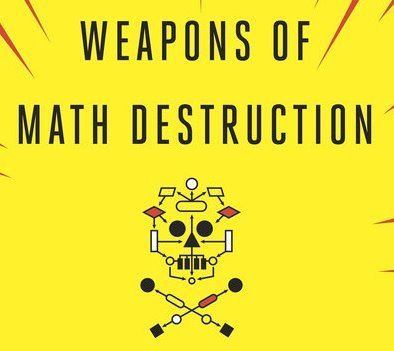 The book is quite pessimistic at time, still I believe it make a point. And we probably don’t realize how much we are surrounded by algorithms that have a direct impact in real life, like for example software used by police to decide where to be more present, or software used for college and university admission, or software used to filter our resumes.
The book is quite pessimistic at time, still I believe it make a point. And we probably don’t realize how much we are surrounded by algorithms that have a direct impact in real life, like for example software used by police to decide where to be more present, or software used for college and university admission, or software used to filter our resumes.
This books comes as part of a growing trend of concerns about how much software may destroy humanity (such as in this post ‘Technology is Breaking Humanity‘. The positive reaction around this topic will certainly become a mainstream trend in 2018.

March 5, 2018
Is Artificial Intelligence really Intelligent?
Jean Piaget famously wrote “Intelligence is what you use when you don’t know what to do“. That’s of course quite a far cry from the supporters of Intelligence Quotient tests (intelligence is what is measured by the test). It is also quite far removed from the capabilities of what we call today ‘Artificial Intelligence’.
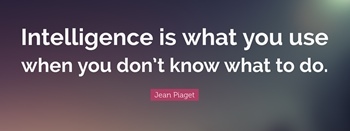 The most common approaches to AI today is machine learning. The machine is exposed to thousands of test pictures or events and learns to distinguish observations. Of course, this approach does not really prepare the machine to deal with unexpected circumstances. In that respect the machine is not really intelligent.
The most common approaches to AI today is machine learning. The machine is exposed to thousands of test pictures or events and learns to distinguish observations. Of course, this approach does not really prepare the machine to deal with unexpected circumstances. In that respect the machine is not really intelligent.
Maybe Artificial Intelligence is not really the right way to describe the capabilities of those machines. Their processing capability is tremendously superior to humans, but they are not intelligent. Yet.

March 3, 2018
Why Discovering Our Strengths is the Path to Success
Marcus Buckingham at Gallup has long affirmed that instead on focusing on our dreams, we should rather focus on our strengths. According to him, discovering our strengths is the shortest path to success.
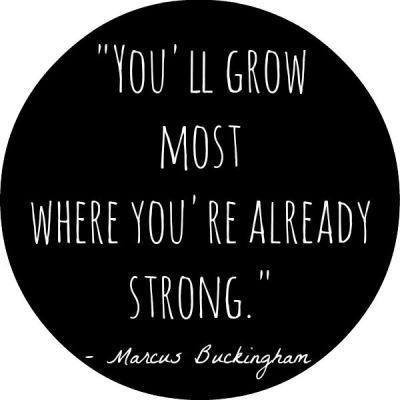 Basically he says that rather than thinking we can be be whatever we want or hope to be, which ends up being vague and may send us down paths that are not ours, we should work on becoming our best.
Basically he says that rather than thinking we can be be whatever we want or hope to be, which ends up being vague and may send us down paths that are not ours, we should work on becoming our best.
While we can learn anything we put our mind to, each of us is wired to excel at some things. Discovering is one part of the process of finding our sweet spot. And if we become extremely good at something, we will certainly like it.
Are your dreams aligned with your strengths? I am not expecting a full alignment because it is always possible to develop skills slightly out of our comfort zone. Still, are your dreams quite aligned with your strengths?

March 1, 2018
What Mindful Courage Actually Is
Getting outside of our comfort zone and getting scared requires courage. In that context I very much like Nelson Mandela’s quote: “I learned that courage was not the absence of fear, but the triumph over it. The brave man is not he who does not feel afraid, but he who conquers that fear.”
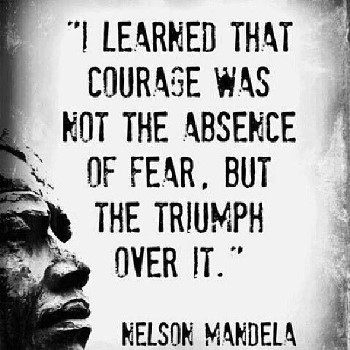 This idea is far reaching, because it puts courage in a new light. Courage is not irresponsibility. Real courage requires to understand the risks and taking them by overcoming our fear.
This idea is far reaching, because it puts courage in a new light. Courage is not irresponsibility. Real courage requires to understand the risks and taking them by overcoming our fear.
Not so many people are really courageous in this mindful sense. Most people are at best unconscious of risk.
When we are mindfully courageous we do push our boundaries while being mindful of what we are doing, why people around us might be reacting like they do and how we need to respond when unexpected things happen.
Learn to be mindfully courageous!




